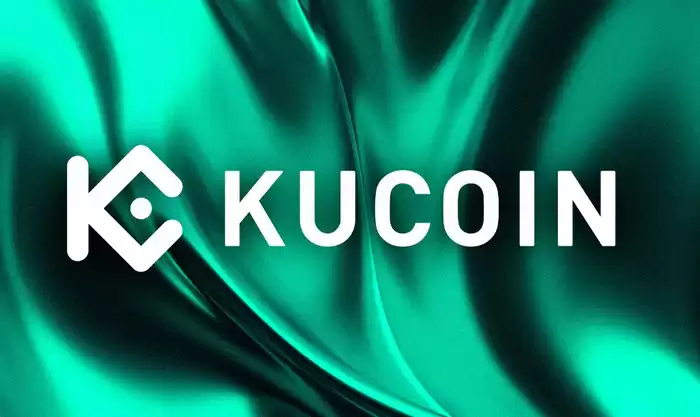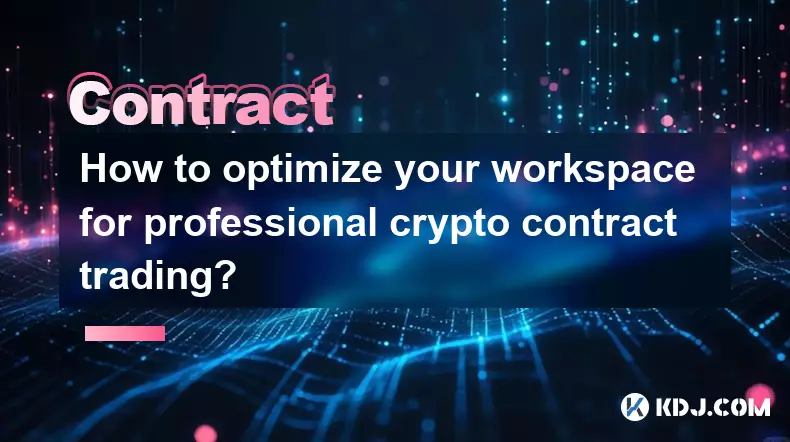-
 bitcoin
bitcoin $87959.907984 USD
1.34% -
 ethereum
ethereum $2920.497338 USD
3.04% -
 tether
tether $0.999775 USD
0.00% -
 xrp
xrp $2.237324 USD
8.12% -
 bnb
bnb $860.243768 USD
0.90% -
 solana
solana $138.089498 USD
5.43% -
 usd-coin
usd-coin $0.999807 USD
0.01% -
 tron
tron $0.272801 USD
-1.53% -
 dogecoin
dogecoin $0.150904 USD
2.96% -
 cardano
cardano $0.421635 USD
1.97% -
 hyperliquid
hyperliquid $32.152445 USD
2.23% -
 bitcoin-cash
bitcoin-cash $533.301069 USD
-1.94% -
 chainlink
chainlink $12.953417 USD
2.68% -
 unus-sed-leo
unus-sed-leo $9.535951 USD
0.73% -
 zcash
zcash $521.483386 USD
-2.87%
How much is the KuCoin contract fee
KuCoin's contract fee structure comprises trading fees, calculated as a percentage of contract value based on taker/maker status and VIP level, and funding fees, periodic payments to maintain market balance.
Nov 11, 2024 at 10:59 am

KuCoin, a reputable cryptocurrency exchange, offers a diverse range of trading products, including contracts, which are leveraged financial instruments that enable traders to speculate on the future price movements of cryptocurrencies. Understanding the fee structure associated with KuCoin contracts is crucial for effective trading decision-making and optimizing returns. This comprehensive article delves into the various fees levied by KuCoin for contract trading, providing an in-depth analysis to empower traders with the necessary knowledge.
Unveiling the KuCoin Contract Fee LandscapeKuCoin's contract fee structure encompasses two primary types of fees: trading fees and funding fees. Trading fees are incurred during the execution of trades, while funding fees are periodic payments or rebates intended to maintain balanced liquidity levels between long and short positions.
1. Trading Fees: A Percentage of Contract ValueTrading fees on KuCoin contracts are calculated as a percentage of the contract value, with different fee rates applicable to takers and makers. Takers are individuals who execute market orders, which remove liquidity from the order book, and incur a slightly higher fee than makers. Makers, on the other hand, create liquidity by placing limit orders, which add to the order book, and receive a small rebate.
The specific trading fee rates vary depending on the contract being traded and the trader's VIP level. KuCoin offers a tiered VIP program with multiple levels, each corresponding to varying fee discounts. Traders with higher VIP levels enjoy reduced trading fees, enabling them to save on trading costs.
2. Funding Fees: Maintaining Market EquilibriumFunding fees are payments made by long position holders to short position holders or vice versa, depending on the market conditions. These fees are calculated periodically, typically every eight hours, and are intended to ensure that the market remains balanced and prevents large price discrepancies between the contract and the underlying cryptocurrency.
The funding fee rate is determined by the funding rate, which is a dynamic value that fluctuates based on supply and demand. When the funding rate is positive, long position holders pay a fee to short position holders, indicating that there is a higher demand for short positions. Conversely, when the funding rate is negative, short position holders pay a fee to long position holders, suggesting a greater demand for long positions.
Unveiling the Nuances of KuCoin Contract Fee StructureUnderstanding the intricacies of KuCoin's contract fee structure is paramount for successful trading. Here's a comprehensive breakdown of the key considerations:
1. Transparent Fee Schedule: A Clear Overview of CostsKuCoin maintains a transparent fee schedule that provides traders with detailed information on the trading fees and funding fees applicable to each contract. This transparency empowers traders to make informed decisions and calculate their potential trading costs accurately.
2. VIP Tier System: Rewarding Trading Volume and LoyaltyKuCoin's VIP tier system offers tiered fee discounts, rewarding traders with higher trading volume and loyalty. As traders progress through the VIP levels, they unlock reduced trading fees, further enhancing their profitability.
3. No Hidden Fees: Ensuring Transparency and TrustKuCoin upholds a strict policy of no hidden fees, instilling trust among traders and ensuring that all costs are clearly disclosed. This transparency promotes fair trading practices and eliminates any unexpected expenses.
4. Competitive Fee Structure: Industry-Leading RatesKuCoin's contract fee structure is highly competitive compared to other major exchanges, offering traders a cost-effective trading environment. The exchange continuously evaluates its fee structure to remain competitive and provide value to its users.
Empowering Traders with a Robust Trading PlatformKuCoin's contract trading platform is designed to provide traders with a comprehensive suite of tools and features. The platform offers advanced order types, real-time market data, and intuitive charting capabilities, allowing traders to execute sophisticated trading strategies effectively.
Disclaimer:info@kdj.com
The information provided is not trading advice. kdj.com does not assume any responsibility for any investments made based on the information provided in this article. Cryptocurrencies are highly volatile and it is highly recommended that you invest with caution after thorough research!
If you believe that the content used on this website infringes your copyright, please contact us immediately (info@kdj.com) and we will delete it promptly.
- UAE Investor Secures Major Stake in Trump-Linked Crypto Firm Amidst Shifting Geopolitical Tides
- 2026-02-02 07:10:01
- Pepe Meme Coin: Navigating the Hype, Price Predictions, and Future Outlook in 2026 and Beyond
- 2026-02-02 07:05:01
- Blockchain Gaming's Quiet Revolution: Unpacking Latest Trends and Industry Insights Amidst Market Shifts
- 2026-02-02 06:30:01
- IPO Genie, Tokenization, and YouTubers: The Big Apple's Next Big Bet on Democratized Wealth
- 2026-02-02 06:40:02
- Aptos in a Bind: Downtrend Deepens, But a Brief Relief Bounce Looms Before the Next Plunge
- 2026-02-02 07:00:01
- Pi Network, ATL, and Community: Navigating the Currents of a Mobile-First Crypto Movement
- 2026-02-02 07:00:01
Related knowledge

How to close a crypto contract position manually or automatically?
Feb 01,2026 at 11:19pm
Manual Position Closure Process1. Log into the trading platform where the contract is active and navigate to the 'Positions' or 'Open Orders' tab. 2. ...

How to understand the impact of Bitcoin ETFs on crypto contracts?
Feb 01,2026 at 04:19pm
Bitcoin ETFs and Market Liquidity1. Bitcoin ETFs introduce institutional capital directly into the spot market, increasing order book depth and reduci...

How to trade DeFi contracts during the current liquidity surge?
Feb 01,2026 at 07:00am
Understanding Liquidity Dynamics in DeFi Protocols1. Liquidity surges in DeFi are often triggered by coordinated capital inflows from yield farming in...

How to use social trading to copy crypto contract experts?
Feb 02,2026 at 07:40am
Understanding Social Trading Platforms1. Social trading platforms integrate real-time market data with user interaction features, enabling traders to ...

How to trade micro-cap crypto contracts with high growth potential?
Feb 01,2026 at 02:20pm
Understanding Micro-Cap Crypto Contracts1. Micro-cap crypto contracts refer to derivative instruments tied to tokens with market capitalizations under...

How to optimize your workspace for professional crypto contract trading?
Feb 01,2026 at 08:20pm
Hardware Infrastructure Requirements1. High-frequency crypto contract trading demands ultra-low latency execution. A dedicated workstation with a mini...

How to close a crypto contract position manually or automatically?
Feb 01,2026 at 11:19pm
Manual Position Closure Process1. Log into the trading platform where the contract is active and navigate to the 'Positions' or 'Open Orders' tab. 2. ...

How to understand the impact of Bitcoin ETFs on crypto contracts?
Feb 01,2026 at 04:19pm
Bitcoin ETFs and Market Liquidity1. Bitcoin ETFs introduce institutional capital directly into the spot market, increasing order book depth and reduci...

How to trade DeFi contracts during the current liquidity surge?
Feb 01,2026 at 07:00am
Understanding Liquidity Dynamics in DeFi Protocols1. Liquidity surges in DeFi are often triggered by coordinated capital inflows from yield farming in...

How to use social trading to copy crypto contract experts?
Feb 02,2026 at 07:40am
Understanding Social Trading Platforms1. Social trading platforms integrate real-time market data with user interaction features, enabling traders to ...

How to trade micro-cap crypto contracts with high growth potential?
Feb 01,2026 at 02:20pm
Understanding Micro-Cap Crypto Contracts1. Micro-cap crypto contracts refer to derivative instruments tied to tokens with market capitalizations under...

How to optimize your workspace for professional crypto contract trading?
Feb 01,2026 at 08:20pm
Hardware Infrastructure Requirements1. High-frequency crypto contract trading demands ultra-low latency execution. A dedicated workstation with a mini...
See all articles










































































